LATEST NEWS


Ten members of the Irvine 11 were sentenced last week to community service, fines and probation for disrupting a speech by the Israeli ambassador on the campus of UC Irvine. It’s not as important to me whether or not these Muslim activists were within their rights under the First Amendment of the U.S. Constitution as that they were ready to take the risk that civil disobedience implies for their strongly held beliefs.
As a veteran of the 1960s civil rights movement, I know how breaking a law in pursuit of a higher justice can be a life-changing experience. When I was 18 I joined 400 others protesting discriminatory hiring practices at a San Francisco auto dealership by going limp in the car showrooms.
The status quo does not change without pressure from below. And in the U.S. often that pressure has taken the form of several hundred people “putting their bodies on the line” —


Despite my Texas upbringing, I, like many people, viewed Rick Perry’s galloping onto the national scene with equal parts horror (he is scary) and “Here we go again.” This guy genuinely questions climate change, genuinely questions evolution, executes human beings with historic vigor and believes government should be virtually dismantled – regardless of the impacts on the poor, the aged or anybody else — except when it helps the corporations he favors.
That said, there is one striking aberration in his human indifference agenda: Like his predecessor, George W. Bush, Perry acknowledges – to some degree – the contribution of immigration, legal or otherwise, to the economic health of Texas and the country. In fact – and this is killing him on the campaign trail – he has supported in-state tuition for the children of undocumented immigrants in Texas. He even said at the most recent debate in Florida that not supporting such policies meant you don’t have a heart.
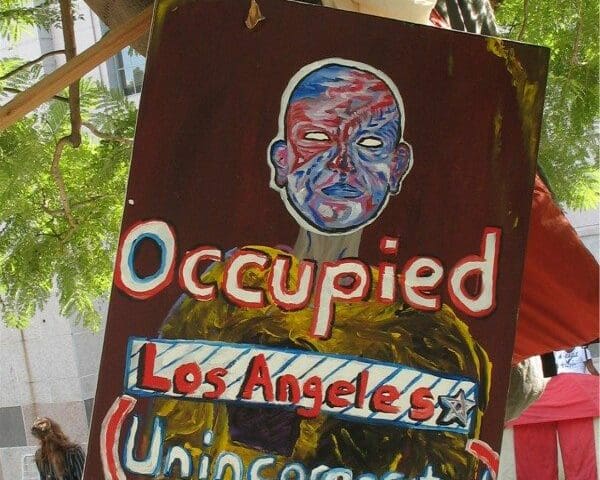
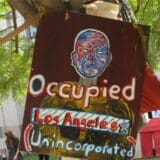
On Tuesday the Occupy L.A. encampment on City Hall’s narrow north lawn along Temple St. entered its fourth day. The camp first arose on the large commons on the hall’s First St. side, but like nearly all things in the city had to give way to the filming of a movie. That film, Gangster Squad, is about racket busters in the Los Angeles of the 1940s and ’50s, an era with almost nothing in common with the present city – except its growing popular dissatisfaction with the direction of the economy.
Some of the hundred or so participants this late, gray afternoon stood on sidewalks with signs (“Restore Glass-Steagall”), while engaging passersby – some from the Conrad Murray trial up the block — or taking the salute of car drivers honking their horns. Others debated among themselves on the lawn, while some kicked back in their small nylon tents.
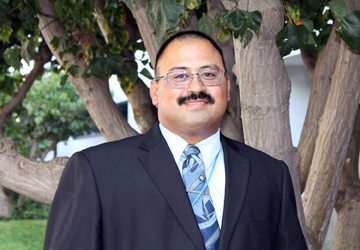

Ernest Melendrez, like many others who work for nonprofit organizations, is passionate about his job. The long hours, modest pay and oftentimes emotionally trying work require the deepest level of commitment. His passion for the work he does at Friends Outside, a nonprofit focused on prisoner reentry, comes from his own life experience. From the time he turned eight, Ernest found himself in and out of the juvenile and corrections systems in California and Arizona. By his final reentry into the “outside” in 2007, Ernest had made up his mind: He was ready to live. At only 35 he still had a lot of life to experience outside the walls of San Quentin and Folsom.
I sat down with Ernest last week to talk about his life both in and out of incarceration. As part of California’s prisoner re-alignment program, California’s 58 county jail systems will gradually begin housing and supervising thousands of nonviolent criminals and parole violators due to overcrowding in state prisons.


Zoos are complex places — literally. Each time I enter one, I’m filled with a nagging ambivalence between competing views and emotions. On one hand, I think about the animals forced to live in enclosed compounds far from their natural setting. But on the other hand, I’m filled with childlike awe and wonder as I watch gorillas, elephants, hippos and the many bird, amphibian, reptilian and mammalian specials that I’d never even heard of.
Zoos have made real progress in how they treat their captives. It’s no longer standard practice – as it was in the zoo of my youth – to keep the animals in small oppressive cages. Today, zoo enclosures mimic natural animal habitats. They’re bigger and have corners and caves where animals can hide from the crowds
So, I’ve come to the intellectual and emotional conclusion that zoos are good institutions that serve critically important public purposes.


In yesterday’s Los Angeles Times op-ed column, “LAANE Turns the Tables,” Jim Newton wrote about LAANE’s pro-active response to finding ourselves the targets of right-wing operatives.
This past May we learned that a major right-wing opposition research firm with ties to Karl Rove and Sarah Palin, and working for an unknown client, had set its sights on LAANE. MB Public Affairs had requested all records pertaining to LAANE from more than 70 elected officials and public agencies in the region. As Newton explained, “The inquiries were almost certainly aimed at unearthing some embarrassing tidbit that would, at best, make LAANE look bad or, at worst, cast some doubt on its tax-exempt status.”
The progressive movement has seen too many of these attacks in recent years, on individuals and organizations. Distortions and misrepresentations used in such attacks often aren’t set straight until after the damage has been done —
» Read more about: Turning the Tables on Right-Wing Attacks »
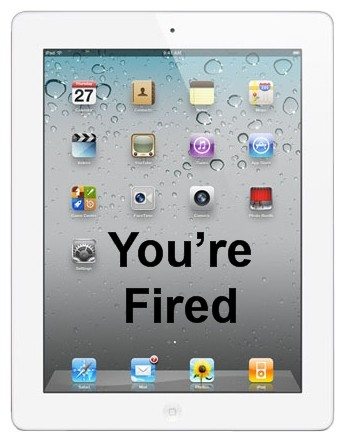
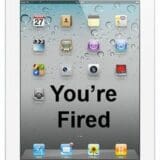
The front page of the L.A. Times recently had a story about some hip restaurants replacing serving staff with iPads. First of all, L.A. Times: front page above the fold? Really?
Now, let’s set aside what the latest twist in automation says about us and our social interactions with other human beings. Instead, I want to focus on the fairly obvious economic implications. With apologies to Martin Niemöller:
First, they came for the bank tellers, and I said nothing, for I was not a bank teller.
Then they came for the travel agents, and I said nothing, for I was not a travel agent.
Then they came for the supermarket cashiers, and I said nothing, for I was not a supermarket cashier.
Then they came for the food service workers,


I was recently asked to take part in a “role play” for a group of Hyatt hotel housekeepers in the basement of their union hall, in the Pico Union neighborhood of Los Angeles. Each had taken a leave of absence from work to talk with community leaders about conditions for room attendants in their hotels, and they needed a chance to practice. The women belong to UNITE HERE Local 11, and are part of a national campaign of housekeepers reaching out for community support of boycotts at several Hyatt properties.
Even though some of them knew me as an active supporter of hotel workers, first as a community volunteer and then as part of the LAANE staff, I agreed to play the director of an environmental organization with limited knowledge about the hotel industry. (This last part didn’t require much acting from me.)
Sometimes struggling to express themselves in English,
» Read more about: Hotel Hell: Can Hyatt Housekeepers Win Respect? »


I’ve met more guys in the building trades that raise kids on their own than anywhere else in my life. That’s how I knew it was possible to do. I’m a single dad and I have primary custody of my son, Ayden. I wouldn’t have been able to do it without the stability I got from working on the L.A. Live project.
Ayden is seven now. He just started second grade. Every day after school, I help him with his spelling and sentences. We do flashcards and memory games. I have him write down a daily paragraph from Kermit the Frog’s song, “It Ain’t Easy Being Green.”
I’ve been out-of-work as an ironworker for over a year — L.A. Live was the last long-term job I had. When I worked on the project, Ayden and I lived in Long Beach. I didn’t drive and took the Blue Line every day to the Staples Center When you work construction,
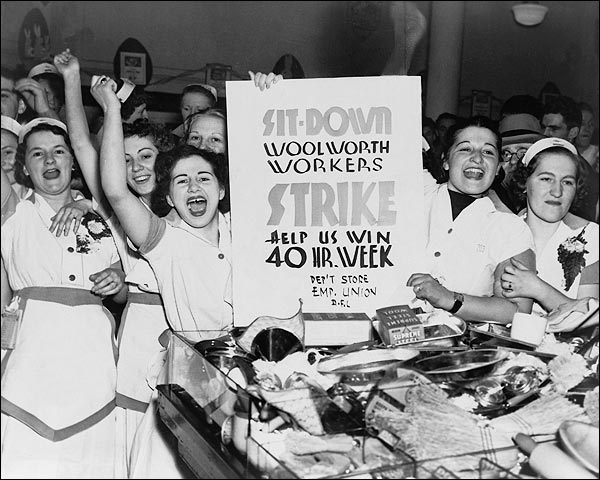
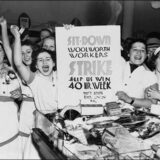
The American labor movement needs a jolt and Joe Burns’ new book, Reviving the Strike, delivers just the right shock treatment.
Debunking commonly held assumptions about labor’s inevitable decline and extinction, Burns, a veteran union lawyer, argues clearly and persuasively that worker power is still possible — but will require a dramatic shift in thinking and strategy.
Don’t expect standard academic or progressive bromides about “coalition-building,” “corporate campaigns,” “organizing-to-scale” or “social unionism.” In taking on some of the labor left’s sacred cows — living wage campaigns, worker centers, etc. — Burns praises and honors the commitment, brains and tenacity of activists. But these approaches, he suggests, lack the singular component necessary to transform power relations in the political economy. That, he contends, is the capacity to stop production.
Burns makes his case in a tightly-written narrative. After the union insurgencies of the 1930s, Congress and the courts imposed a system he calls “labor control,” one designed to disable unions’ principal and primary weapon: the strike.


Tom Morello went from playing guitar in the L.A. club band Lock Up to arena-stage stardom as a founder of Rage Against the Machine. The Harvard-educated Grammy winner’s many other music projects have included Audioslave and his current solo, accoustic incarnation called the Nightwatchman. He is the classic rebel in the rain, an all-seasons champion for the rights of the underdog, one who performs at protests from Madison to Wall Street.
On the eve of a new tour in support of his World Wide Rebel Songs LP, Morello spoke to the Frying Pan about his new comic book, protest and a certain president who, like Morello, has a Kenyan father and white mother.
What was the first thing that ever made you mad?
Well, growing up as the only black kid in my school was one thing, but as far as global events it was Bobby Sands’ hunger strike in Ireland.
» Read more about: The Nightwatchman Speaks: An Interview With Tom Morello »
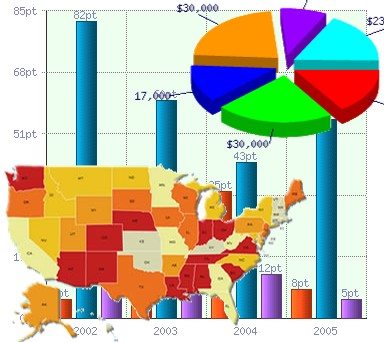
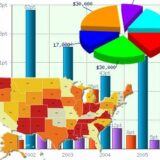
Things are seldom what they seem. Sometimes the distance between what we think we see and what is actually there is the result of personal prejudices. Sometimes it’s influenced by a kind of factual gerrymandering created by official sources and reinforced by the media. Most vacationers, for example would choose Carnival-happy Brazil in a moment over drug war-scarred Mexico. Unless they knew that Mexico has only 11 homicides per 100,000 people while halcyon Brazil is a murder leader with 31 homicides per 100,000 – a fact that seldom appears on Rio brochures or on our own six o’clock news.
And so it is here in America, where our own perceptions of unemployment and poverty often clash with the facts. The official calculation for the number of people out of work puts it at a single-digit — nine percent — while in California it nips at the heels of 13 percent.
» Read more about: Perceptions Lie: Why Official Facts Don’t Always Add Up »
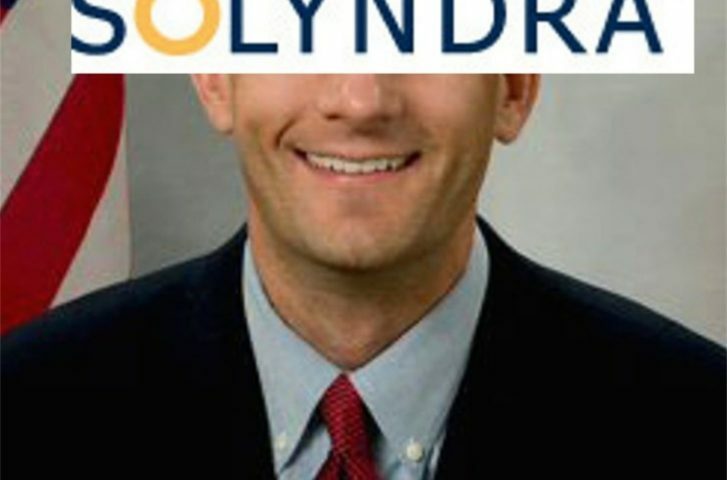

Across the country critics of the Obama administration’s multimillion-dollar support for Northern California’s Solyndra solar panel factory are railing against government stupidity. How is it possible, they ask, that federal and state governments could have invested hundreds of millions of taxpayer dollars in a company that went belly up? Why didn’t the officials take more precautions, do more research, put in place more safeguards? How could they have been so dumb and so wasteful of precious government dollars?
But really, what the conservative Obama critics are saying is that the federal government and states such as California and Wisconsin that invested millions in the company should have had more bureaucratic red tape. Yes, that most hated of terms, “red tape” is something that could have actually prevented a huge loss of government dollars in an unwise investment.
Extreme right-wing conservative Wisconsin Congressman Paul Ryan said it well in an article this week on Fox.com:
.
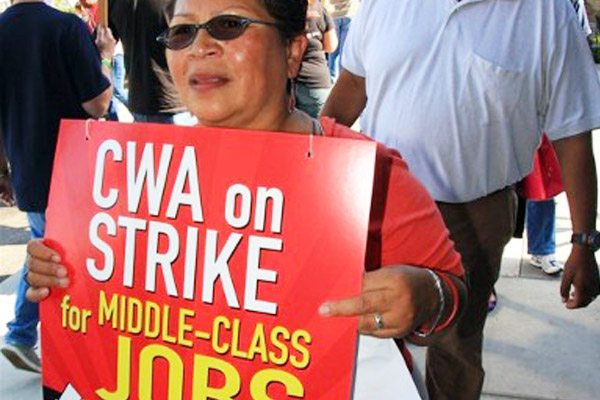
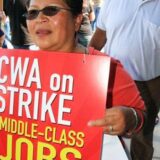
A few years ago the nonprofit, nonpartisan Los Angeles Economic Roundtable released a study that got too little attention. It found that union workers in the county earn 27 percent more than nonunion workers in the same jobs. These extra wages for the 800,000 union workers—17 percent of the labor force—added $7.2 billion a year in pay. As union workers spent their wages on food, clothing and other items, their additional buying power created 64,800 jobs and $11 billion in economic output. Let me repeat: $11 billion.
Clearly unions are good for the economy. But to hear business propaganda tell it, that 11 billion is the 11th Plague, because anything that moves the country away from an imaginary, 19th-century Utopia where business held all the cards, is to be avoided — like the plague.
This winner-take-all crowd should be happy because, in many ways, America today does resemble its Gilded Age of the late 1800s —


Corporations are forever arguing that all that stands between consumers and paradise is the “lousy gummint” and its lousy regulations. “Get out of the way!” is their rallying cry. Well, we had a bit of a natural experiment this past summer, as Congress forced a shutdown of the Federal Aviation Administration. (As it happens, the shutdown sprang, in part, from anti-union ideological reasons, but that’s a whole other story.)
In addition to furloughing some 4,000 FAA employees and idling tens of thousands of construction workers, the shutdown deprived the government of an estimated $30 million in ticket taxes—every day.
Some might argue that the government needs that revenue. But let’s focus on the positive: Without the taxes, ticket prices are lower for consumers, and that’s a good thing, right? Awwww, you’re adorable. A couple of airlines did pass the savings on to travelers, but according to a travel agent I spoke with (yes,
» Read more about: Conned Air: How Airlines Skyjacked Your Tax Savings »


The Los Angeles Times recently carried a report on one of its polls, the key finding of which was that the electorate is unwilling to compromise.
This article was dripping with contempt for voters, who apparently prefer things like “party orthodoxy,” want to “stick to their guns,” are “hardline” and “putting their priorities above compromise.” Their “concede nothing mentality” makes it hard for either side to “come out of its ideological corner.”
The evidence for these central findings is largely from one question (No. 59), asked only of Democrats: Would they’d prefer that Obama “compromise more with Republicans” or “stand up to Republicans”?
According to the pollster’s analysis, 60 percent of Dems want Obama to stand up, while only 33 percent want him to compromise. The problem is how the analyst got there. Voters had four choices: Compromise “somewhat or much,” and “stand-up somewhat or much;” the poll analysis aggregates the “somewhat” and “much” options to get its “total standup” versus “total compromise” result.
» Read more about: Go Figure: An L.A. Times Poll’s Strange Numbers Game »
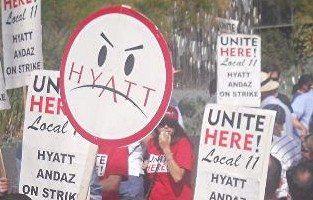
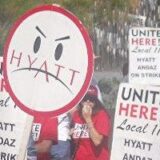
We were met at the Hyatt Andaz loading dock with a big sign that said, Welcome Back, Andaz Employees. I crept into the entrance, a nervous wreck, still uncertain if I had been fired or replaced, but I was soon relieved to find that everyone had been let back in. We were greeted with forced smiles and boxes of multi-colored donuts.
Union members refer to each other as brothers and sisters. It may seem cultish at first, but after my experience with a seven-day strike at the Hyatt Andaz last week, it makes perfect sense. There is nothing that bonds people like walking off a job together, protesting their employer and taking no pay for a week, all in hopes of getting a better situation. We made a financial sacrifice and some of us, including myself, are pondering the first of the month with certain dread.
There is a general sense of uneasiness,
» Read more about: After the Storm: A Hyatt Striker Returns to Work »
[dc]J[/dc]ohn Densmore has been famous for longer than many of us have been alive. The drummer with the seminal 1960s L.A. band The Doors, Densmore parlayed his early success into a long career – not just as a musician but as a writer, actor, dancer, producer and social activist. He’s a native Angeleno (his childhood home is now an onramp where the 405 meets the 10) who cares deeply about his city and is clearly disturbed by the country’s right-ward turn
Densmore chatted recently with The Frying Pan about politics, Jim Morrison’s legacy and the subject of his upcoming book – greed.
Okay, let’s start with a rant.
I’ve been thinking about how the eight years of the Bush era brought us back towards feudalism – we’ve been feuding a lot. And of course the gap between the rich and poor is the worst in our history and the middle class is the glue between the upper class and the working class,
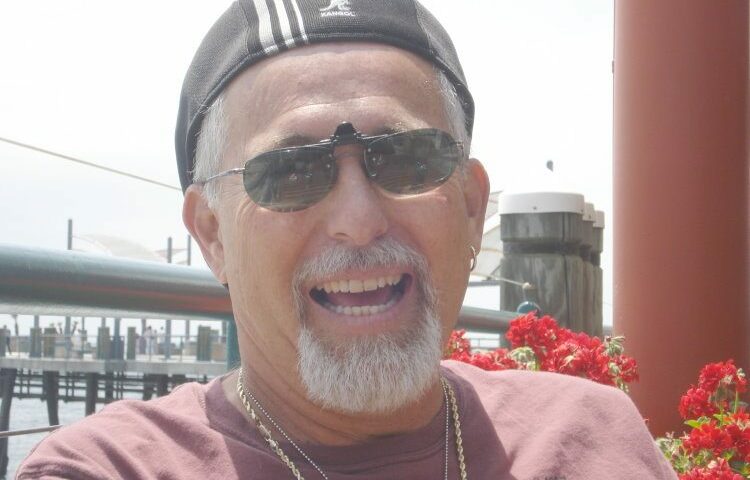

Ed Padgett works as a pressman at the L.A. Times’ Olympic Boulevard printing plant – a third-generation employee who has been with the paper 39 years. He currently blogs at his site, Los Angeles Pressmens 20 Year Club. Padgett began posting messages in 1990, before the advent of the Internet, because, he says, “I was getting a bit bored.” His tedium vanished in 2008 when, after press operators voted to join the Teamsters (the first union shop on Times property since 1967), Times managers began, he said, continual attempts to fire union members on a variety of workplace rule infringements.
What’s happening at the Times these days?
They’re expecting a really bad fourth quarter. The senior vice president told us we’ve got three years more of printing the hard copy Times before they shut it down.
» Read more about: Paper Tiger: Q&A With L.A. Times Pressman Ed Padgett »
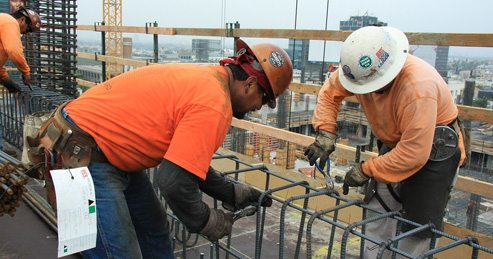
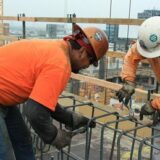
By Anthony Mitchell, Electrician
As Told to The Frying Pan
I’ve been an electrician since 1999. I’ve worked on many kinds of jobs, the most rewarding being a few schools I helped build from the ground up. But those jobs are rare these days. These are the toughest times I’ve seen, and it doesn’t look like it’s about to let up.
The recession has hit construction so hard we can hardly believe it. In the last few years, I’ve only worked about four months out of the year. I’m on the list at the union hall. There used to be enough work to keep most of us busy, but now when a job opens up there are about 80 people on the books ready to take it. I think I’m number 82, so I’m not expecting a project to come through for quite a while.
Four months a year isn’t enough to get by on.